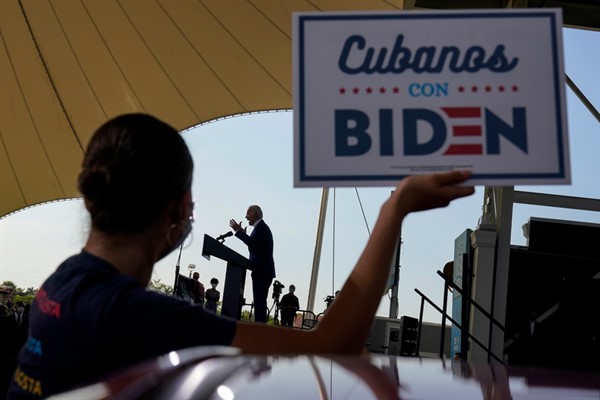Few countries suffered more from former President Donald Trump’s policies than Cuba. The Trump administration imposed sanctions and restrictions designed to blow up the historic detente between Washington and Havana forged by Trump’s predecessor, Barack Obama. These measures—as well as sanctions on Venezuela’s oil industry, which cut off a much-needed source of subsidized energy—battered Cuba’s state-run economy, which has also been hard-hit by the impact of the COVID-19 pandemic on the country’s critical tourism sector. As a result, in a moment of political transition and quickening market reforms, Cuba is now experiencing its worst economic crisis since the “Special Period,” as the years of economic free fall following the collapse of the Soviet Union are known.
Joe Biden’s election as U.S. president gave Cubans reason to be cautiously hopeful. As vice president in the Obama administration, Biden was involved in the normalization of diplomatic relations with Cuba, a process that broke with decades of animus between Washington and Havana. As a presidential candidate, Biden pledged to reverse Trump’s policies that “have inflicted harm on the Cuban people and done nothing to advance democracy and human rights.” By doing so, Biden could relieve the pressure that some Cubans felt from Trump’s punitive measures and resume the process of normalization with Cuba.
But to make relations between the U.S. and Cuba more sustainable, both sides will have to do “their part,” says Ric Herrero, executive director of the Cuba Study Group, “to change the political climate and generate greater political capital.” According to Herrero, whose Washington-based organization supports U.S. engagement with the island, the Cuban government must implement its own measures to strengthen socioeconomic linkages so that engagement can lead to more resilient ties.*

